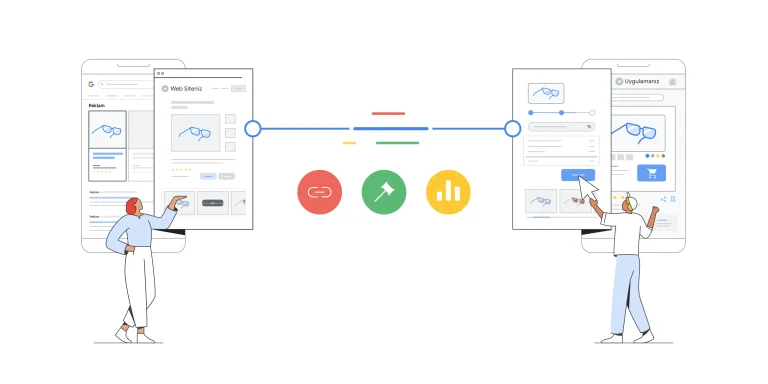In today’s business environment, companies are increasingly turning to various automation solutions to enhance efficiency, reduce costs, and minimize errors. One such solution is Robotic Process Automation (RPA). RPA is defined as a technology that uses software robots to perform repetitive and rule-based tasks. By automating routine business processes with RPA, companies allow their employees to focus on more strategic tasks. In this article, we will explore how RPA is used in business processes, its advantages, and potential application areas.
What is RPA and How Does It Work?
Robotic Process Automation involves the execution of tasks by software robots that mimic human actions through user interfaces. These robots can handle repetitive tasks such as data entry, reporting, invoice processing, and customer service. RPA operates by integrating with existing IT infrastructure, automating processes quickly and accurately. RPA software works with structured data, carrying out tasks without the need for human intervention.
Application Areas of RPA in Business Processes
Finance and Accounting: RPA is widely used in financial transactions, invoice processing, payment tracking, and budget management in accounting processes. For instance, in the invoice processing workflow, RPA robots automatically receive incoming invoices, extract relevant data, and record it in accounting systems. This shortens processing time and eliminates manual errors.
Human Resources (HR): In HR departments, RPA is used to automate tasks such as recruitment processes, payroll processing, and employee data management. For example, in recruitment, RPA scans job applications, selects suitable candidates, and sends interview invitations. This allows HR teams to focus on more strategic HR activities.
Customer Service: RPA automates tasks such as processing customer inquiries, routing requests, and updating customer data in customer service processes. Customer service robots can respond to frequently asked questions and provide quick responses to customer needs. This enhances customer satisfaction and allows customer service representatives to focus on more complex issues.
Supply Chain Management: RPA automates tasks such as order management, inventory tracking, and supplier management in supply chain processes. For example, an RPA robot can monitor inventory levels and automatically place new orders when a certain threshold is reached. This increases efficiency in the supply chain and reduces inventory costs.
IT Support and Management: RPA can be used in IT support processes for tasks such as automatic ticketing, system monitoring, backup, and recovery operations. IT support robots can automatically detect system issues and take corrective actions. This helps IT teams better manage system performance and minimize potential disruptions.

Advantages of RPA for Businesses
Increased Efficiency: RPA allows employees to focus on higher-value tasks by automating repetitive and time-consuming tasks. This leads to faster and more efficient completion of business processes.
Error Reduction: RPA performs tasks consistently and according to predefined rules. This minimizes human errors and increases data accuracy. Reducing errors is especially critical in sensitive areas such as financial transactions.
Cost Savings: RPA reduces labor costs associated with manual tasks. Automated processes require fewer human resources, leading to cost savings for businesses. According to a study by Deloitte, companies using RPA can achieve labor cost savings of 30% to 70%.
Compliance and Security: RPA tracks and documents processes in compliance with regulatory requirements. This simplifies the process of ensuring regulatory compliance. Additionally, RPA robots enhance data security and ensure the secure handling of sensitive information.
Scalability: RPA can quickly respond to sudden increases in workload. Businesses can add new RPA robots or reconfigure existing ones according to their needs. This flexibility allows businesses to respond to changing business needs.
The Future of RPA and Trends
Intelligent Automation: When combined with artificial intelligence (AI) and machine learning (ML) technologies, RPA offers intelligent automation solutions. This enables the automation of complex and unpredictable business processes. Intelligent automation is powered by deeper data analytics, natural language processing (NLP), and decision support systems.
RPA and Process Mining: Process mining is a technique used to analyze and optimize business processes. When combined with RPA, process mining helps better understand business processes and identify efficiency gaps. This enables more effective implementation of RPA projects.
Cloud-Based RPA: RPA solutions are becoming more accessible and scalable by moving to cloud computing platforms. Cloud-based RPA allows businesses to rapidly deploy RPA solutions and optimize costs.
Human-Robot Collaboration: A new trend in RPA is the collaboration between humans and robots to tackle complex tasks. Human-robot collaboration contributes to the optimization of business processes by allowing RPA robots to handle routine tasks while employees focus on more strategic work.
Robotic Process Automation is a powerful tool that enhances efficiency, reduces costs, and minimizes errors for businesses. By automating repetitive and rule-based tasks, RPA allows employees to focus on more creative and strategic work. At Marker Groupe, we help our clients optimize their business processes by offering RPA solutions. As RPA continues to be adopted more widely in the future, it will pave the way for more efficient and effective operations in the business world.
To learn about the services provided by Marker Groupe, you can contact us via the MarkerGroupe.com website or via the e-mail address hello@markergroupe.com.





